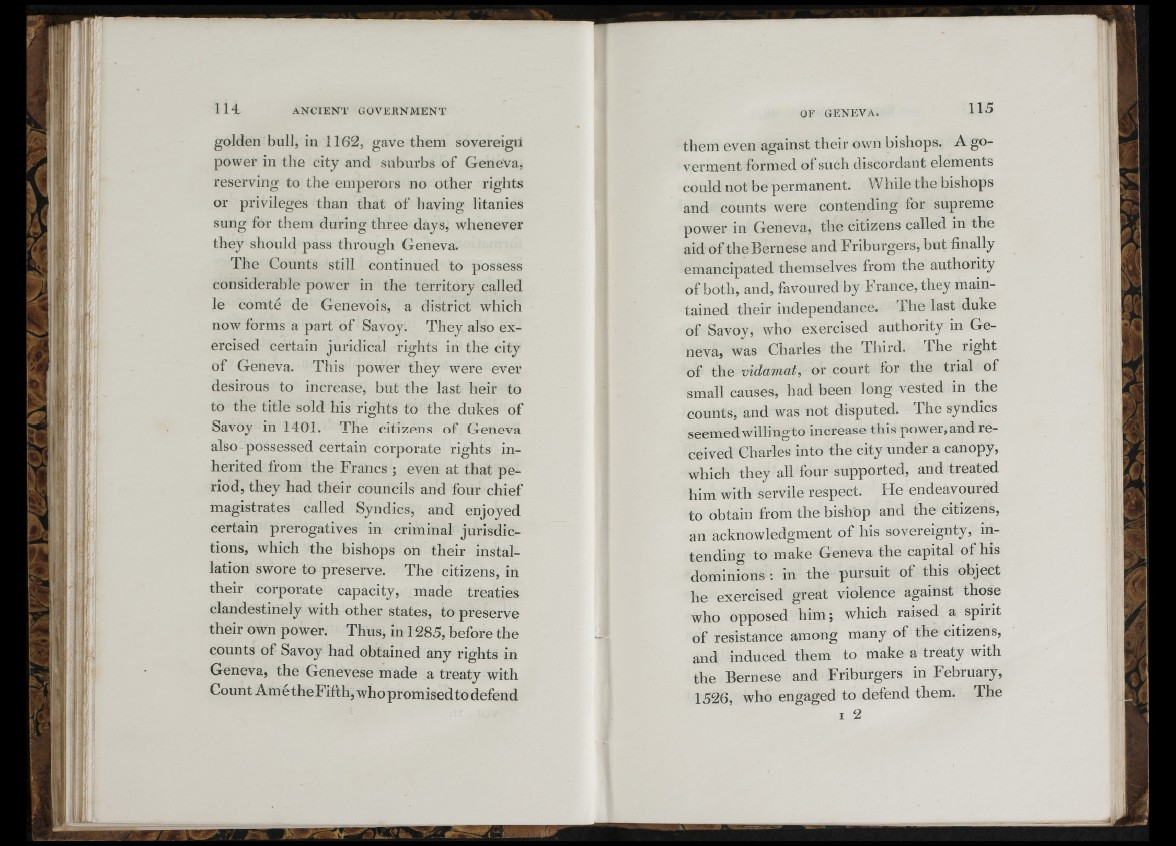
golden bull, in 1162, gave them sovereign
power in tlie city and suburbs of Geneva,
reserving to the emperors no other rights
or privileges than that of having litanies
sung for them during three days, whenever
they should pass through Geneva.
The Counts still continued to possess
considerable power in the territory called
le comté de Genevois, a district which
now forms a part of Savoy. They also exercised
certain juridical rights in the city
of Geneva. This power they were ever
desirous to increase, but the last heir to
to the title sold his rights to the dukes of
Savoy in 1401. The citizens of Geneva
also possessed certain corporate rights inherited
from the Francs ; even at that period,
they had their councils and four chief
magistrates called Syndics, and enjoyed
certain prerogatives in criminal jurisdictions,
which the bishops on their installation
swore to preserve. The citizens, in
their corporate capacity, made treaties
clandestinely with other states, to preserve
their own power. Thus, in 1285, before the
counts of Savoy had obtained any rights in
Geneva, the Genevese made a treaty with
Count Amé theFifth, who promised to defend
them even against their own bishops. A go-
verment formed of such discordant elements
could not be permanent. While the bishops
and counts were contending tor supreme
power in Geneva, the citizens called in the
aid o f the Bernese and Friburgers, but finally
emancipated themselves from the authority
of both, and, favoured by France, they maintained
their indépendance. The last duke
of Savoy, who exercised authority in Geneva,
was Charles the Third. The right
of the vidamat, or court for the trial of
small causes, had been long vested in the
counts, and was not disputed. The syndics
seemed willingto increase this power, and received
Charles into the city under a canopy,
which they all four supported, and treated
him with servile respect. He endeavoured
to obtain from the bishop and the citizens,
an acknowledgment o f his sovereignty, intending
to make Geneva the capital of his
dominions : in the pursuit of this object
he exercised great violence against those
who opposed him ; which raised a spirit
of resistance among many of the citizens,
and induced them to make a treaty with
the Bernese and Friburgers in February,
1526, who engaged to defend them. The
I 2